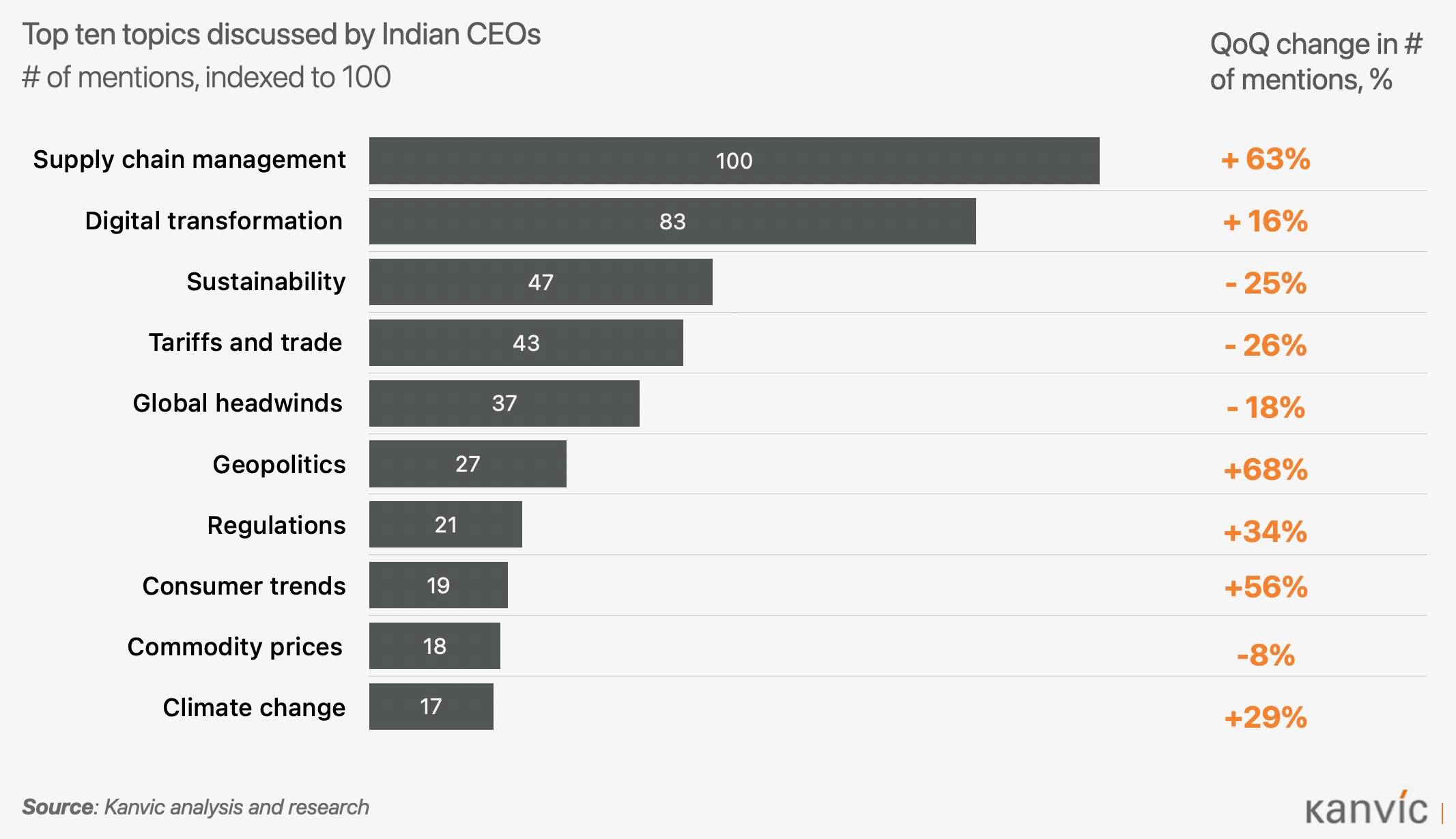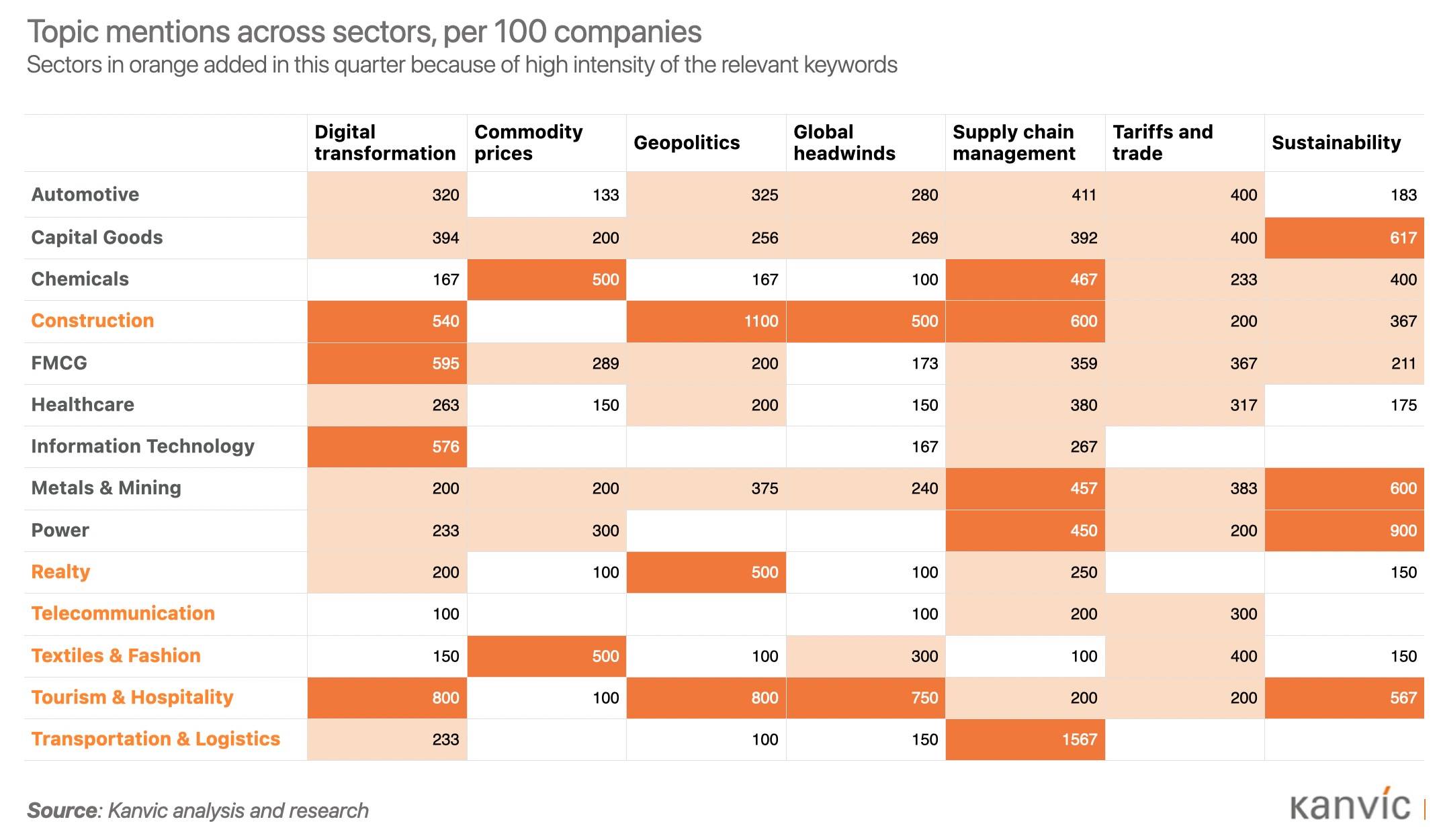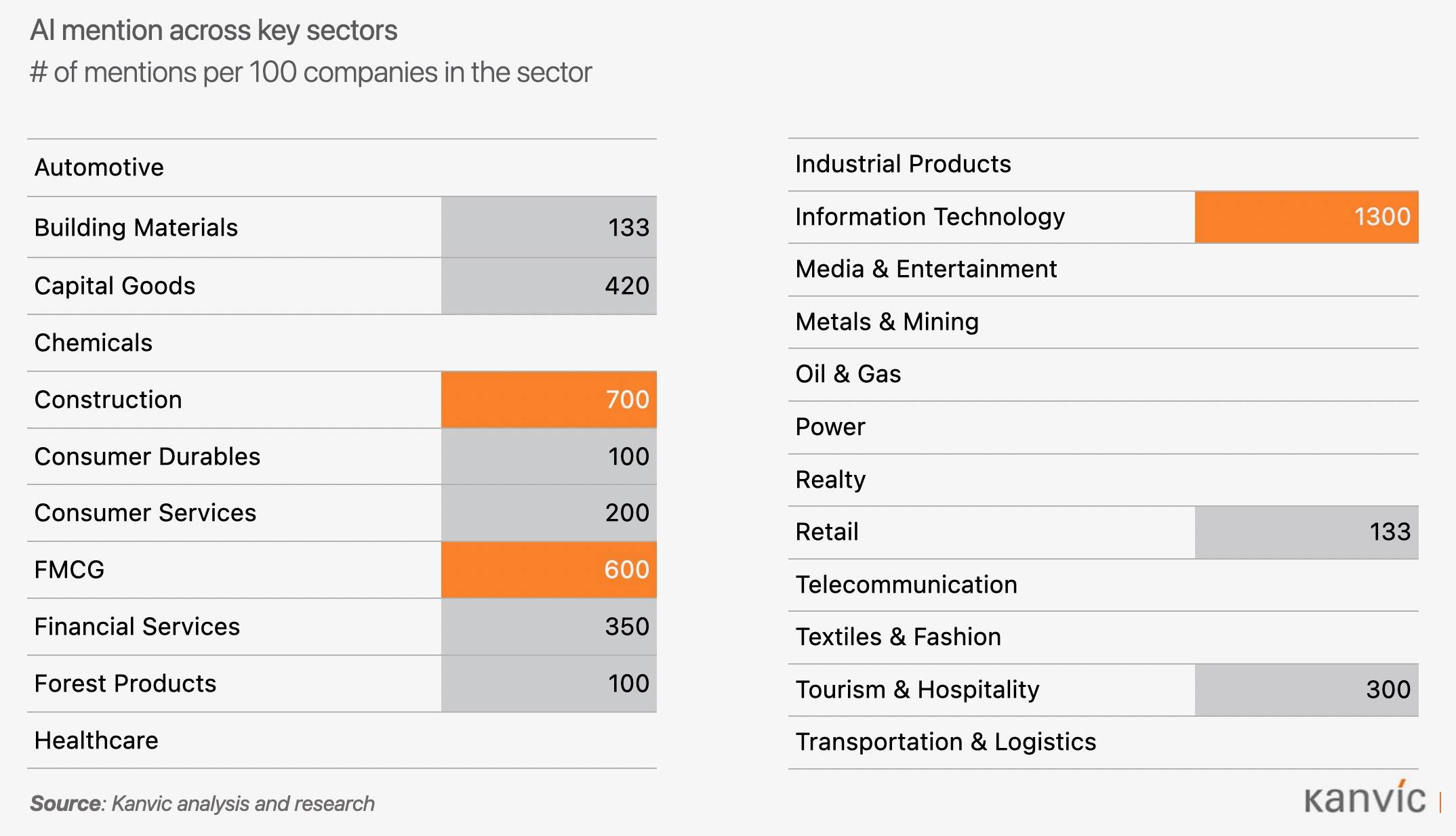As global trade tensions intensify and operational pressures mount, C-suite leaders are sharpening their focus on controllable execution levers that can deliver near-term resilience. The second quarter of 2025 reveals a fundamental shift in CEO priorities—from long-term transformation narratives to immediate operational imperatives that can buffer their organisations against external volatility.
Kanvic's CEO Agenda Q2 2025 analysis, drawing from quarterly analyst calls across India's most prominent companies, reveals three defining movements in leadership discourse: supply chain conversations have surged dramatically as tariff uncertainties reshape global trade architectures; artificial intelligence discussions are accelerating beyond technology sectors to redefine operational strategies across traditional industries; and sustainability mentions have declined sharply as CEOs temporarily reallocate attention toward growth and financial performance in a challenging macroeconomic environment.
The quarterly analysis provides critical intelligence on where India's business leaders are placing their bets and what this means for competitive positioning in an increasingly uncertain operating landscape.
Supply Chain Emerges as the Dominant Strategic Priority
Supply chain discussions have surged 63% from the previous quarter, catapulting this operational domain to the most mentioned topic across CEO conversations in Q2 2025. This uplift reflects the immediate strategic response to recent global developments, particularly the escalating tariffs war that is fundamentally repositioning global trade and supply chain architectures.








